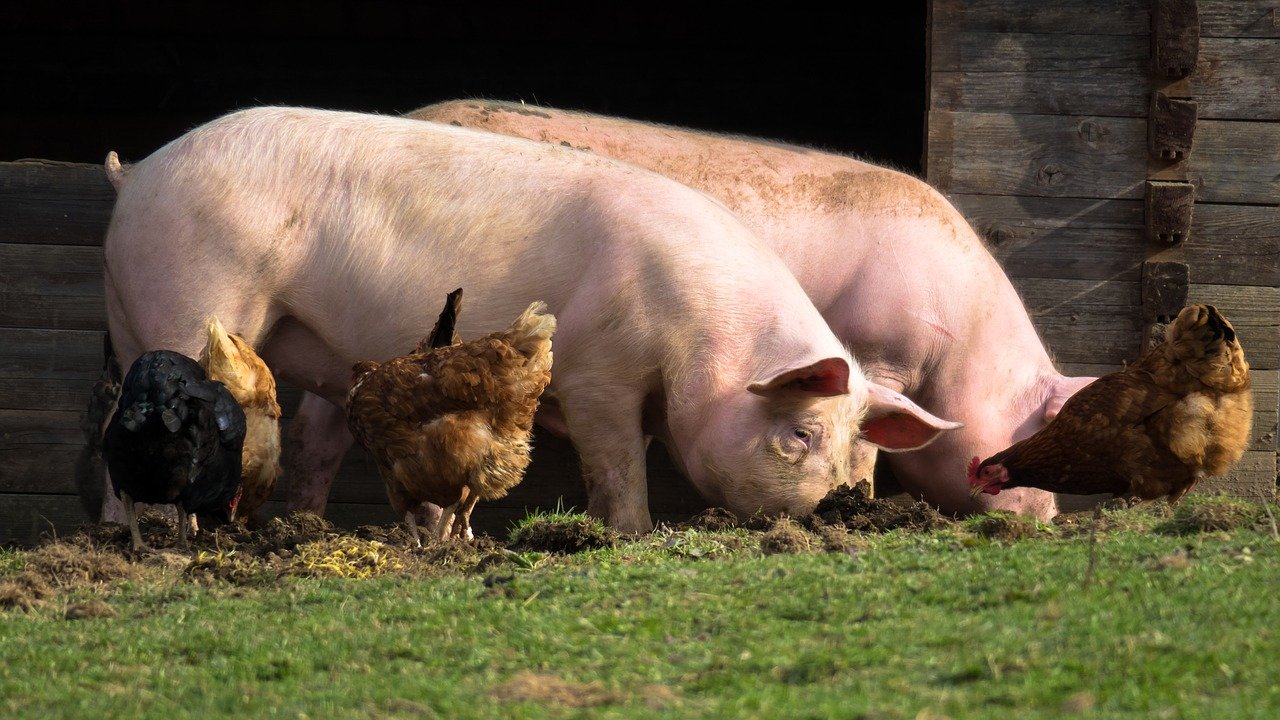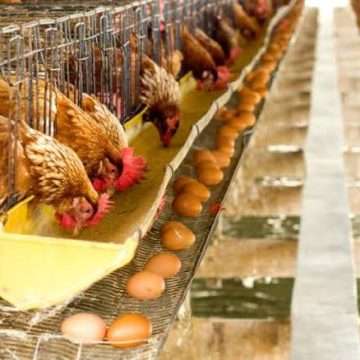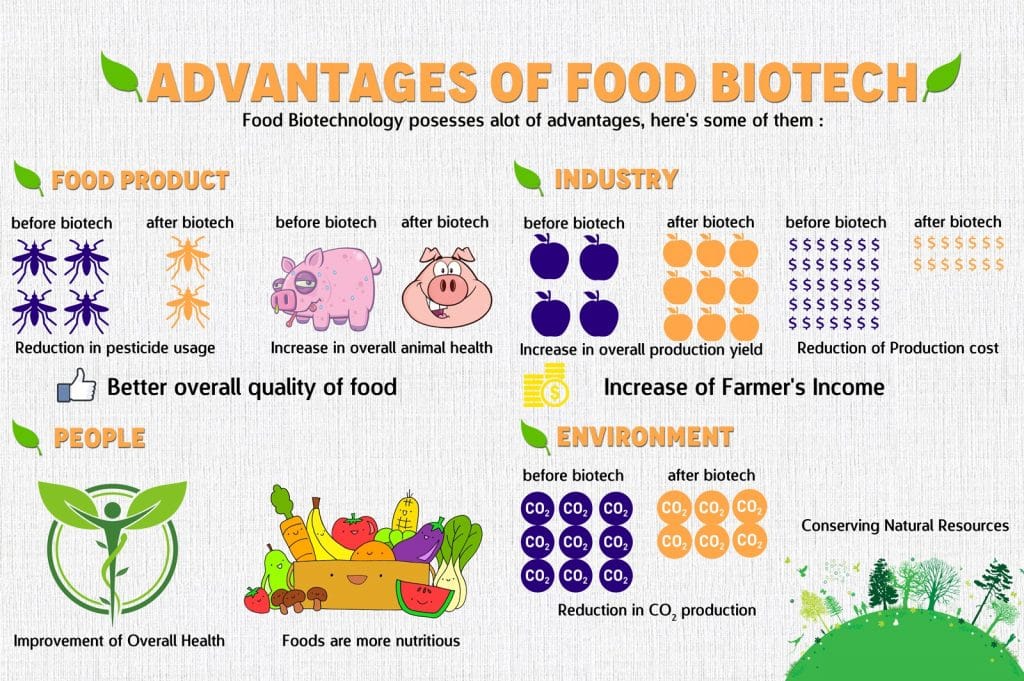As technology is shaping up every industry, agriculture and food production is not left out.
With the growing world population, food insecurity is becoming a daily issue to address, old farming practices can not help with the increasing food demand.
Therefore, technology is now employed in growing foods, improving nutrients, and making them more available.
One of the technologies researched to increase food production is biotechnology.
What is Food Biotechnology?
It’s the use of modern technology tools to alter the genes of plants, animals, and microorganisms to form new varieties of desired traits.
These genes are modified to improve the nutrients in foods, to produce more, make it pest and disease resistant, resistant to unfavorable climatic conditions, long-lasting in storage.
With Food biotechnology, farmers can now grow improved varieties on a larger scale with limited farmland.
Advantages of Food biotechnology
There are several advantages of food biotechnology but how biotechnology affects agriculture are in three major categories.
The benefits of biotechnology can be to human life, farmers, and the environment.
Advantages of food biotech to the environment
Food Biotechnology plays a vital role in conserving our ecosystem.
The new varieties of plants that are developed require less tilling and plowing.
These old farm practices result in soil degradation as a result of changes to the soil structure and composition which often result in the loss of fertile topsoil.
These new varieties will help the soil in better absorption of water, oxygen, and nutrient, and healthier soil.
Tillage and plowing will expose the soil and make it lose carbon dioxide which is needed by insects and microbes in the soil.
This will further increase the need for fertilizer, cost of production and low productivity and profit for farmers can all be prevented with biotech food varieties.
When the new varieties which will grow well without these old practices are planted, it’ll increase and improve food production.
Not only will biotechnology help the earth to produce more nutritious foods, but it will also reduce the farm energy use, thereby reducing greenhouse gas emissions when there’s no-tilling on the farm.
The Benefits of Food Biotech to consumers
There are benefits of biotechnology in human life. Apart from helping in increasing farm yield for farmers, it increases food availability, helps conserve land for another purpose since more can be produced with the same land with old plant and animal varieties.
it also helps in producing more nutritional foods. With food biotech, foods can be made to have more nutrients which are found in some other scarce foods, thereby helping correct nutrient deficiency.
As discussed above, it enables farmers to use fewer pesticides as many varieties are pest and insect resistant. This prevents plants from developing diseases that can affect nutrient composition negatively and cause them to decay in due time because of the bacteria, fungus, or virus attack on the farm.
Examples of these facts about biotechnology in agriculture
There are now new varieties of rice with added vitamins and beta-carotene which will make this staple food to enhance our health.
Also, protein-rich foods like soya have long been reported to contain allergen. Some modern techniques help in removing those allergic reactions.
Other examples of foods that have been modified are corn, cotton, canola, squash, papaya, alfalfa, sugarbeet, etc
By making consumers aware of these facts, farmers can grow more of these varieties and make them available on a larger scale to people.
Importance of biotechnology to farmers
As the cost of food production is increasing, available farmland is used to develop industries and homes, and the global human population is increasing, farmers are faced with several challenges to increase productivity to meet the rising demands of foods and nutrients of the growing population.
Biotechnology, with its modern food testing and processing techniques, is one of the ways out of food insecurity.
Studies by the US government have proven that 1.4 billion dollars of production costs have been saved by farmers in a year thereby increasing net profits which summed up to 2 billion dollars with the help of biotechnology.
Already in developed nations like US and England, farmers are taking the advantage of biotechnology to increase yield and profits, including low-scale farmers.
Biotech seeds that can resist insects can result in plants becoming less damaged by pests, resulting in higher yields. In the same way the resistance to diseases in both plant and animal
Also, there are new varieties of climate-resistant crops that can grow and yield good productivity in the most extreme conditions like severe heat or severe cold or drought conditions which otherwise lead farmers to financial losses.
Further, it can also help farmers in reducing fuel emissions as plowing is less used in biotechnology. This makes farmers limit greenhouse gas emissions and save a lot of fuel, manpower, and costs.
Conclusion
In a nutshell, Food biotechnology can make farmers experience a whole new world of agriculture and consumers can expect better nutritional food.
Though there have been some concerns of food biotechnology as regards the potential risks on the ecosystem, Biotech foods have been widely accepted and proven to be very cost-effective and profitable.








